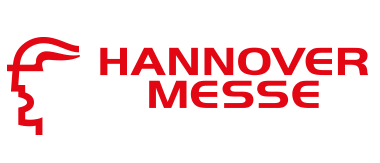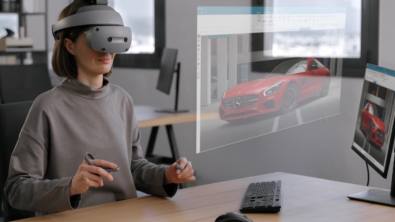AI highlights from Hannover Messe 2025

Artificial intelligence is the topic at the front of everyone’s minds right now, whether that’s a chat around the water cooler or at Hannover Messe, one of the world’s leading industry trade shows. Since the release of ChatGPT 3.5, the AI industry has exploded in size with new advancements releasing on a seemingly weekly basis and now the benefits of advanced AI are starting to make their way into industry.
To safely adopt AI into an industrial setting, the AI itself must be made industrial-grade – offering robust, reliable and repeatable results that can enhance productivity across the board. This year at Hannover Messe, Siemens is showcasing a wide range of Industrial-Grade AI solutions for everything from smarter designs to streamlined production.
Check out a few of the most interesting use cases in this blog or click here for more information.
AI enables data-driven manufacturing
All manufacturing sectors are facing increasing pressure to accelerate production and reduce costs while maintain stringent quality standards and Pharmaceuticals is no exception. This year at Hannover Messe, Siemens is showcasing how AI can support advanced digitalization to help address these challenges by leveraging a comprehensive suite of digital solutions, from advanced process modeling and simulation to AI-powered automation and predictive maintenance.
Relying on digitalization and the comprehensive digital twin enables companies to virtually design and optimize complex processes – like bioreactor operation – before physical prototyping, significantly reducing development time and resource consumption. AI can further enhance these processes by accelerating complex simulations, such as the fluid models involved in mixing ingredients, allowing for accurate right-the-first-time production.
Augmenting machines with AI-powered tools like the Industrial Copilot allows them to provide real-time assistance and troubleshooting via a chatbot interface, reducing downtime while maximizing flexibility. Bringing together data, recipes and analytics in the digital world also supports the move to paperless manufacturing, digitizing a traditionally analog process in a way that makes it more robust and efficient.
Building a smarter future with AI
A key AI topic this year are Industrial Copilots – generative AI-powered assistants designed to support users across the entire industrial value chain, from initial design and production planning to ongoing operations and maintenance. Industrial Copilots go beyond a simple chatbot by connecting with everything from design tools to maintenance manuals to process data, bringing together experts, insights and data in a way that was never possible before.
Underpinning the Industrial Copilots are Siemens new Industrial Foundation Model, new AI models trained from the ground up to handle industry specific data types including 2D and 3D models. These foundation models also allow customers to further finetune their own AI solutions to assist with complex tasks such as computer aided manufacturing (CAM), design validation and more which were traditionally limited to human operators.
Beyond optimization and adaptability, AI is also playing a crucial role in building a more sustainable future. Siemens is leveraging AI-powered systems for advanced material sorting and component assessment during the disassembly of end-of-life products. This intelligent approach to e-waste recycling maximizes material recovery and supports the transition towards a circular economy. From streamlining operations to enabling sustainability, AI is at the forefront of innovation efforts, paving the way for a more efficient, resilient, and environmentally responsible manufacturing ecosystem.
Empowering Designers with AI Copilots
AI isn’t just going to change the way products are produced but designed too. With increasingly complex products necessitating highly complex tools, the learning curve to bring new and even experienced users up to speed can be steep. Alongside the Industrial Copilots supporting factory operations, design tools including Siemens NX and Simcenter Amesim are starting to incorporate them as well.
Incorporating AI directly into design tools can flatten the learning curve by putting a knowledgeable expert directly in the tool itself, passing expert knowledge to users through a chat interface. An AI-driven Industrial Copilot could do everything from automating mundane tasks to offering assistance and suggestions to new users based on past design data and expert training. With its advanced natural language processing (NLP) abilities, AI is also an ideal tool to assist with data search, whether that be searching for just the right function in a design tool or key information spread across a dozen documents in a vast database.
As AI adoption in industry continues gain momentum, the impact it will have on everything from design to maintenance and manufacturing will only continue to grow as well. Companies like Siemens are showcasing the next generation of AI-enabled software and solutions at Hannover Messe 2025, showing a glimpse of a smarter AI-enhanced product lifecycle.
To find out more click here.
Siemens Digital Industries Software helps organizations of all sizes digitally transform using software, hardware and services from the Siemens Xcelerator business platform. Siemens’ software and the comprehensive digital twin enable companies to optimize their design, engineering and manufacturing processes to turn today’s ideas into the sustainable products of the future. From chips to entire systems, from product to process, across all industries. Siemens Digital Industries Software – Accelerating transformation.


